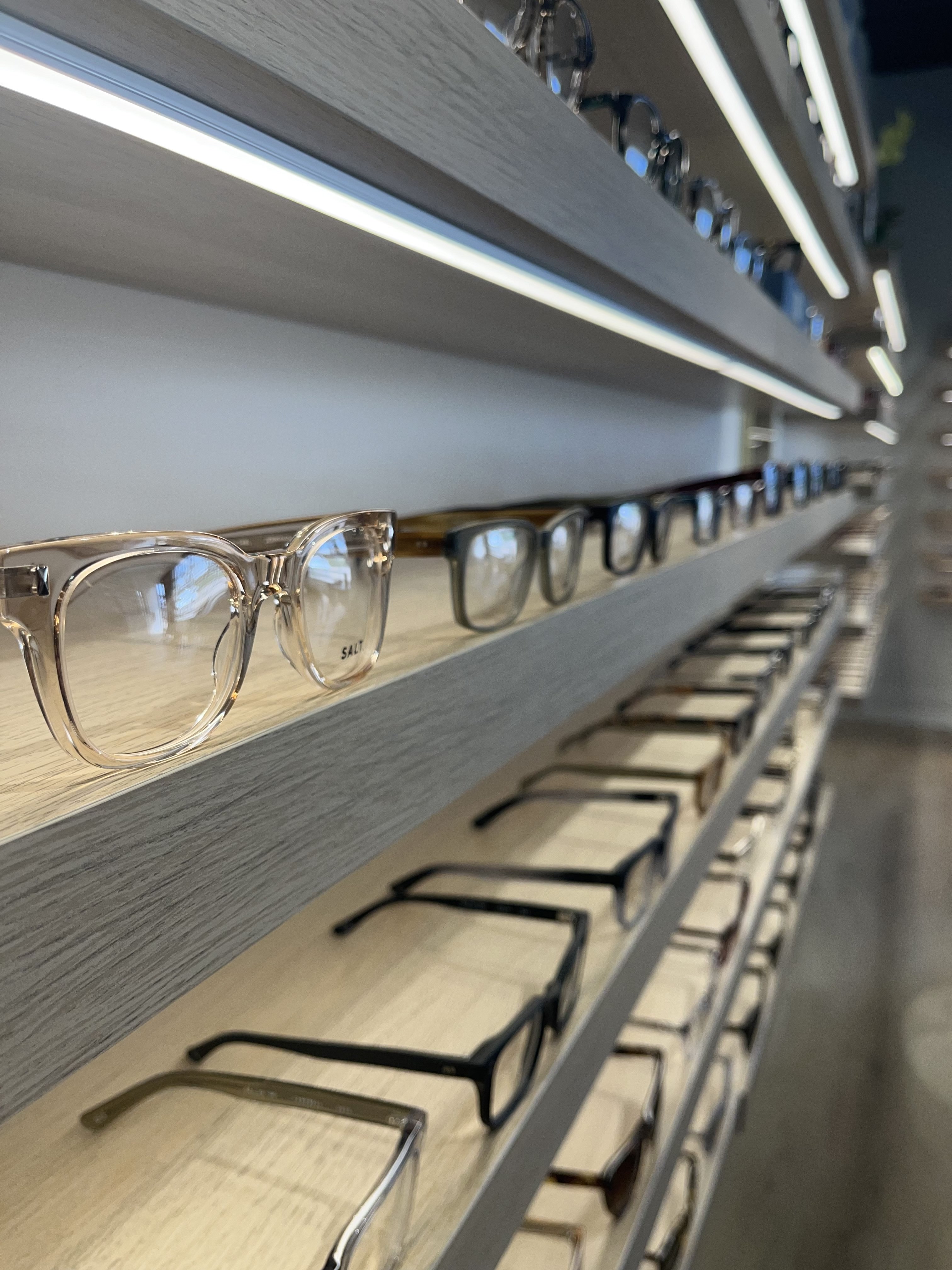
When it comes to achieving clear vision, there are several options available to correct refractive errors, but what are they? Is clarity the same in contacts vs glasses? From glasses to contact lenses, and even advanced procedures like laser eye surgery, the world of vision correction can sometimes be overwhelming. In this blog post, we aim to provide clarity into the world of vision correction, exploring the pros and cons of different methods including glasses, contact lenses, and laser eye surgery. Whether you're a long-time glasses wearer or considering a more permanent solution, understanding the advancements and considerations of each option can help you make an informed decision about your vision correction needs.

Glasses: Classic and Reliable
Glasses have been a trusted vision correction method for centuries. They offer various advantages, including visual clarity, easy maintenance, and adds to the style & fashion of the wearer as an accessory. Glasses provide immediate and accurate visual correction individually customized to you, allowing you to see clearly at various distances depending on your prescription. They are also relatively low-maintenance compared to other options, requiring minimal cleaning and care, making them convenient for everyday use. Finally, with a wide range of frame styles, colors, and designs available, glasses have become a fashionable accessory, allowing you to express your personal style. On a side note, although they are called “glasses”, they are rarely made with actual glass nowadays due to safety concerns and also the availability of more durable, lightweight materials.
There are, however, a few drawbacks to glasses. One such limitation is a potential limitation on your peripheral (side) vision. In certain styles, the frame edges may restrict your peripheral vision. Additionally, patients with a higher prescription will experience more distortion through glasses, due to either the magnifying or minifying effect of the lens. Reflections and glare are also a disadvantage of glasses and can occur, particularly in certain lighting conditions, affecting visual comfort.

Contact Lenses: Freedom and Flexibility
Contact lenses provide an alternative to traditional eyeglasses and offer unique benefits, such as a more natural visual experience, increasing cosmetic appeal, and supporting patients with a more active lifestyle. Since contact lenses sit directly on the eye instead of in front of it, contacts allow a wider field of view without being blocked by bulky frames. They also eliminate the barrier of glasses, drawing attention to your eyes and allowing them to shine instead of a frame. Finally, contacts are ideal for individuals with active lifestyles as they don’t interfere with sports, outdoor activities, or wearing protective eyewear.
Contacts are not, however, without their own limitations. Proper contact lens care and hygiene are essential to prevent eye infections and ensure optimal eye health, and bad habits will breed bacteria. There is also an adjustment period for contacts, where some individuals may require an adjustment period to adapt to wearing contact lenses, especially if they are new to this form of vision correction. Another limitation is that contacts do not come in every prescription. In fact, they are most likely not your exact prescription. Unlike glasses, contacts are not made specifically for each patient, they are instead mass produced. Your optometrist will get you as close as possible to your prescription, and because of this, the clarity in contacts for some patients may not be as sharp as glasses.
Laser Eye Surgery: A Permanent Solution
Laser eye surgery, such as LASIK or PRK, offers a more permanent vision correction option. Procedures such as LASIK can significantly reduce, or even eliminate, the need for glasses or contact lenses, providing long-lasting visual freedom. The procedure itself is quick, and many patients experience improved vision within a few hours to days after surgery. The precision and customization is also unmatched. Laser technology allows for precise reshaping of the cornea, tailored to each individual's unique prescription.
Although there are many advantages, laser eye surgery is not suitable for everyone. A patient may not be a good candidate for laser eye surgery. Factors such as age, eye health, past infections or injuries, and stability of prescription play a role in determining suitability. There are also potential risks and side effects. While laser eye surgery is generally safe, it is a surgery that creates a wound on the eye, and therefore comes with potential risks and side effects, including dry eyes, glare, halos, or nighttime vision disturbances.
Choosing the right vision correction option is a personal decision that should be made in consultation with your optometrist or ophthalmologist. Glasses, contact lenses, and laser eye surgery each have their advantages and considerations. Factors such as lifestyle, visual needs, eye health, and personal preferences should be taken into account. At Sight To See Eyecare & Eyewear, our experienced professionals can guide you through the decision-making process, providing expert advice and personalized recommendations. Whether you opt for glasses, contact lenses, or want to explore the possibility of laser eye surgery, your journey toward improved vision starts with a comprehensive eye examination.
Remember, regular eye exams are vital to monitor your eye health and ensure your chosen vision correction method remains effective over time. Now, with a clearer understanding of the various options available, you can confidently navigate the path towards enjoying a world of clear and vibrant sight.






